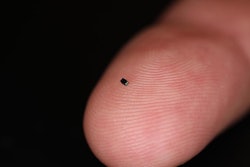Monoclonal antibody treatments encourage the body’s natural immune system to attack cancer cells. However, applying this therapy to the brain has proven very difficult due to the blood-brain barrier. An IEEE Spectrum article noted that MRI and ultrasound could be the key to delivering cancer drugs through the barrier to help fight tumors.
MRI and Ultrasound Can Help Deliver Cancer Drugs to the Brain
Scientists are making the blood-brain barrier temporarily more permeable to allow drugs to pass through.
Nov 10, 2021
Sustainable Healthcare Packaging Solutions That Work
Industry leaders share proven strategies for reducing packaging emissions by up to 70% while meeting safety and regulatory requirements.
Read More
Start 2026 with Smarter Packaging for Life Sciences at PACK EXPO East!
Be the first to find what’s next in packaging for life sciences at PACK EXPO East. See solutions from 500 exhibitors, gain inspiration in free educational sessions and uncover new ideas for your industry and beyond—all in one trip to Philadelphia.
REGISTER NOW & SAVE
Downloads




















